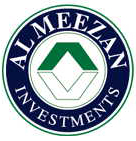| |
Dubai: GCC-based Islamic banks and investment companies are fast expanding into Asian markets with Qatar Islamic Bank being the latest to join the fray.
Most of the Gulf-based Islamic institutions that have made their bid to enter Asia have done it through Malaysia because of the relatively advanced legal and regulatory infrastructure already in place in the country.
"Malaysia is one of the pioneers in Islamic banking and has the highest number of sukuks issued worldwide and Islamic banking in Malaysia is highly supported by the central bank and the government," said Abdullatif Abdullah Al Mahmmoud, chairman of the Asian Fin-ance Bank and Managing Director of Qatar Islamic Bank.
According to analysts the advent of Islamic banking, the dawn of the world's largest domestic Islamic capital market, the growth of Islamic assets and its staggering prospects are attracting Gulf's Islamic institutions and petrodollars to Malaysia.
Recent estimates by Standard & Poor's say the global Islamic financial sector is expected to grow 18 per cent per annum. In reality, Islamic bankers say the total amount of deposits in selected Islamic institutions, the balance sheets, the assets under management and the stash of private wealth are growing at more than 25 per cent annually.
The Gulf is home to more than 100 million Muslims and wealth in the region is expected to grow to $1.8 trillion by 2010 from $1.2 trillion in 2005, according to a report by Merrill Lynch & Co and Capgemini Group. Record revenues for Middle East oil producers, including Saudi Arabia and Kuwait, have helped spur the growth of Islamic banking into an estimated $1 trillion industry worldwide.
Malaysia is attractive because of the tax exemption it offers up to 10 years for non-ringgit transactions or Islamic bonds (sukuks) issued in Malaysia. Apart from a large domestic market, Malaysia is also being perceived as a gateway to China, Indonesia Brunei and Singapore.
Last week, Qatar Islamic Bank announced the formal opening of the Asian Finance Bank in Malaysia with a capital of $100 million. QIB and its strategic partners will have a 70 per cent stake in AFB while Rusd Bank, a Saudi Arabia based investment bank, and Kuwait's Global Investment House will have 20 per cent and 10 per cent stakes, respectively
|








